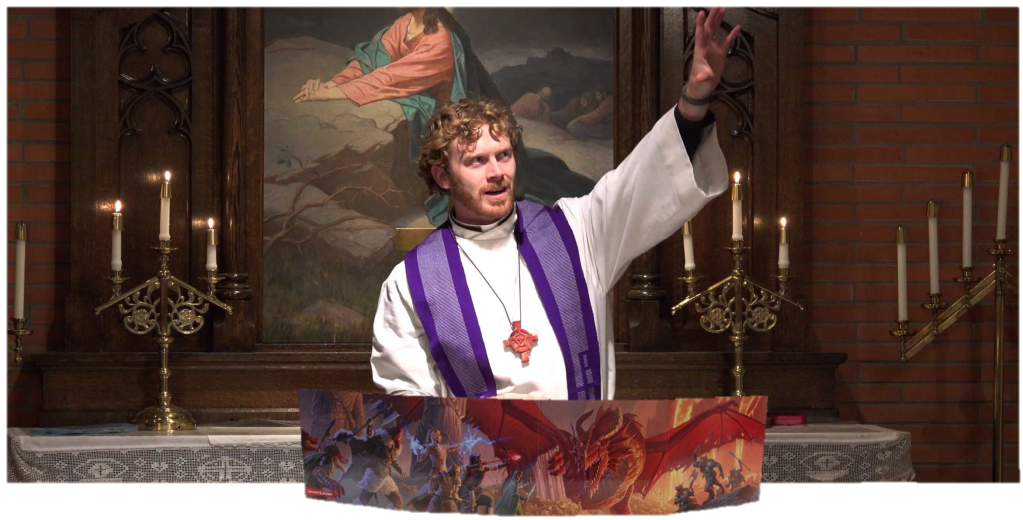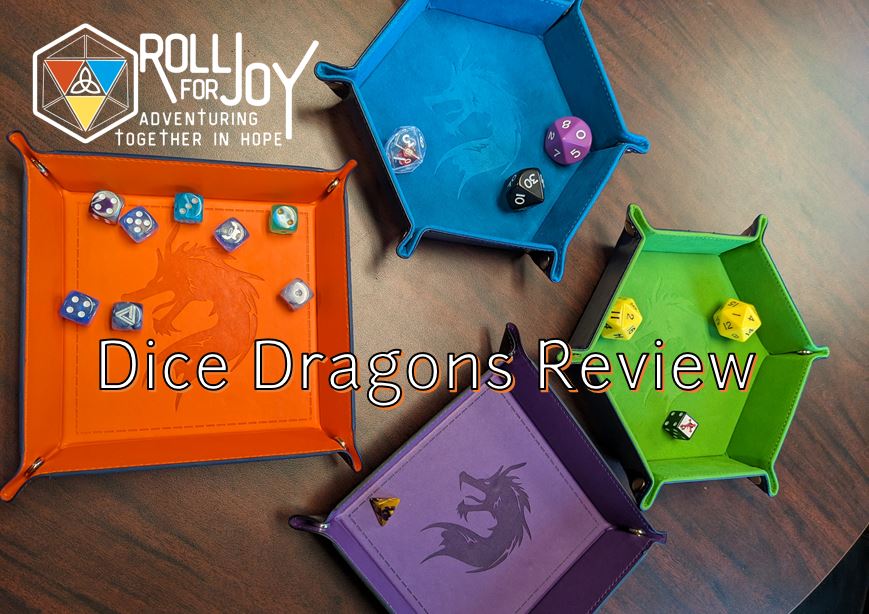There are some folks out there who say that you can’t be both a Christian and a player of role-playing games like Dungeons & Dragons, or even enjoy the fantasy genre of entertainment. The basic argument is that D&D (and fantasy in general) is more than a game, but rather a real and dangerous meddling with occult beings.
Even though I really don’t agree with them, I took those concerns for face value in my previous post. I showed that Christ has the power to free us from our fear of demons (frees us from our fear of everything, really). I also reminded folks that D&D IS A HARMLESS GAME!
Now I want to take up the second concern that I raised. What is my responsibility as a pastor to my church members? As their pastor and teacher in the Christian faith, should I play D&D knowing that there might be some who look askance at this fantastic hobby? Or should I give up my Dungeon Mastering for the sake of those who feel that faith and fantasy ought not mix?
Let’s go back to the example I used last time, Paul’s advice on eating unclean food and food that has been offered to idols. Paul’s letters to the Corinthians and the Romans both caution against eating this food publicly. He says, “Do not, for the sake of food, destroy the work of God. Everything is indeed clean, but it is wrong for you to make others fall by what you eat.”♠ In Corinthians he says, “Therefore, if food is a cause of their falling, I will never eat meat, so that I may not cause one of them to fall.”♣ In this sense, playing D&D is not worth offending potentially weak members of my congregation and causing them to stumble in their faith.
One might be tempted at this point to say that role-playing games and the like should be politely denied. Even Luther appears to agree that I should restrict my freedom for the sake of the weak, saying, “If you wish to use your freedom, do so in secret.”♥ Blogging about playing Dungeons & Dragons (and talking about it on podcasts) is hardly done in secret.
I can’t rest here though, for Luther also says something I understand to say that our freedom ought to be embraced and D&D should be played. In describing the plight of the weak in faith, Luther discusses the cause of their weakness. “It is not by their fault that they are weak, but by that of their pastors who have taken them captive with the snares of their traditions and have wickedly used these traditions as rods with which to beat them. They should have been delivered from these pastors by the teachings of faith and freedom.”♦
I worry that by only playing in secret, or by not playing at all, I would become one of these pastors who teaches the snares of tradition rather than faith and freedom. Sound teachers of the freedom of faith are needed. Scriptures also say, “There are also many rebellious people… they must be silenced, since they are upsetting whole families by teaching for sordid gain what it is not right to teach…. For this reason rebuke them sharply, so that they may become sound in the faith…. To the pure all things are pure, but to the corrupt and unbelieving nothing is pure. Their very minds and consciences are corrupted.”◊
It seems that the best pastoral option for me in this situation is to play D&D and use it as an opportunity to embolden the weaker members of my congregation and others in the Christian fold with a teaching of faith and freedom. In fact, if I glean anything from what Luther or Titus say about the responsibility of pastors and faith leaders, it’s that we absolutely should embrace this freedom and do so publicly! In this way I am able to both care for those with a weaker faith and also withstand any potentially stubborn members of my congregation who do not yet grasp the powers of faith and cling to the law and their own works.
What I hope for, more than anything, is that someone who is questioning might find my words here. What I hope for is that there would be more voices in the world that are talking and telling about how Christian faith and our daily life can and do mix. What I hope for is that someone who wants to play D&D, but has a religious or moral “authority” tell them they can’t or they shan’t, might find these words and find in them a sound argument for why a Christian can be a more faithful Christian by embracing role-playing games as the spiritually harmless fun that they are.
Now, I am convinced that not only are the reasons not to play D&D spiritually weak and theologically bankrupt, but also that THERE ARE A PLETHORA OF REASONS TO PLAY this amazing game. I believe it can enhance my participation in God’s mission in the world, help me a better Christian and a better pastor, and just teach me to be a better human being. But more on that… next time!
♠ Romans 14:20.
♣ 1 Corinthians 8:13.
♥ Martin Luther, Three Treatises, trans. Charles M. Jacobs (Philadelphia: Fortress Press, 1970), 313.
♦ Luther, 312.
◊ Titus 1:10-15.






Leave a comment